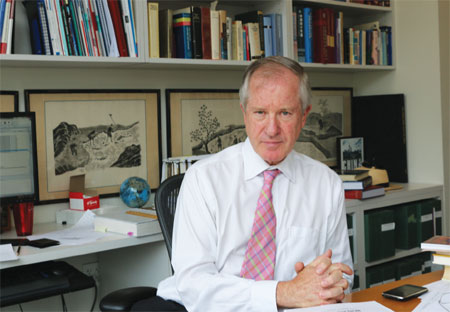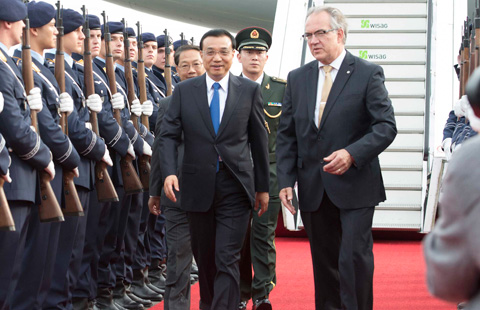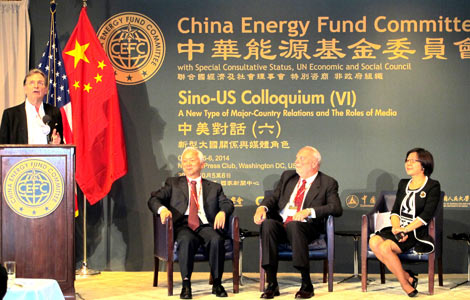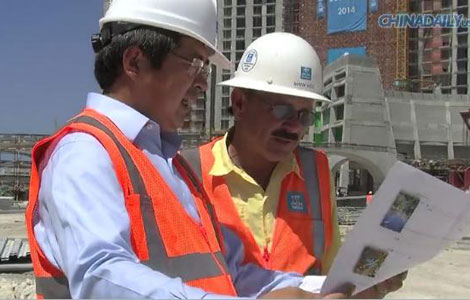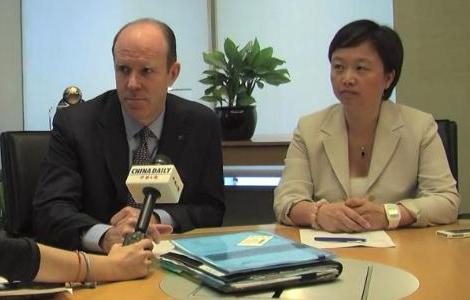Economist eyes China's transformation
Updated: 2014-08-29 13:03
By Chen Weihua in Washington(China Daily USA)
|
||||||||

|
Nicholas Lardy, a senior fellow at the Peterson Institute for International Economics, talks to China Daily in his office. Chen Weihua / China Daily |
Nicholas Lardy, one of the leading economists on China in the United States, has been very excited about the economic reform plans rolled out at the Third Plenum of the 18th Central Committee of the Communist Party of China last November.
The Third Plenum has promised to give market forces a bigger say in the economy and also laid out an agenda for financial reforms.
"I think the blueprint is excellent. The question is implementation," said Lardy, a senior fellow at the Peterson Institute for International Economics based in Washington.
Lardy warned that if reforms are not implemented, and credits continue to expand and the level of investment still accelerates over the next three to four years, then the outcome could be very different.
"Then there is a high possibility of a hard landing and much slower growth," he said.
Lardy has seen positive signs. He said China's economy is moving in the right direction, with private consumption in GDP rising in each of the last three years, albeit gradually, current account surplus going down from 10 percent in 2007 to 2 percent now, and a service sector growing more rapidly than GDP for the first time in a long while.
Employment growth has also been strong despite a slow-down of GDP growth. And contrary to what many believe, Lardy argued that slower growth can also generate many jobs, since much of the service sector is quite labor intensive.
Lardy believes rapid growth of wages and employment in China will create more favorable conditions for consumption.
Setting priorities
While praising the Third Plenum blueprint, Lardy pointed out that it was not very good on setting priorities, such as what should be done first.
"I am very big on interest rate liberalization because I think it's key to a lot of the other things. I am very big on reducing the power of monopolized sectors to allow the entry of private businesses," he said.
In his view, if the liberalization of interest rates takes place, the deposit rates and lending rates will go up, and that will bring down the rate of investment.
High interest rates will also lead to more lending to the private sector, according to Lardy, citing the example that the return on investment in the private manufacturing sector is 15 percent compared with only 5 percent for State firms.
While Lardy does not believe the reforms can and should be done overnight since a sudden rise of interest rate, for example, could cause a lot of companies with debt to go bankrupt.
"What you need to do is to get on a path where interest rates are rising," he said. That will send a signal to companies that the cost of capital is going up and they need to get to a level of being efficient and sustainable.
"I think China has been in a low-interest environment for a long time," Lardy said.
Lardy believes it's a mistake for China to protect the monopolies of State companies that are not very efficient, citing figures in his upcoming book Markets Over Mao: The Rise of Private Business in China, to be released this September.
Even on the monopoly side, Lardy said progress has already been made in oil and gas and telecom sectors, but less so on the financial sector. And China's leaders have fully realized the need to bring down the credit growth and growth rate of investment.
"That's what my reading of what the Third Plenum is really shooting for, to get more efficiency, and making the market a more decisive factor in allocating resources," he said.
Most Viewed
Editor's Picks

|

|

|

|

|

|
Today's Top News
Premier pushes innovation on German visit
Beijing to keep the lid on air pollution for APEC
Li arrives in Germany, first leg of Europe trip
China's economy surpasses US
IMF: Shadow banking filling gaps
China's status prominent at 'Big Four' firm Ernst & Young
US Ebola patient dies
China's role grows in Gates Foundation tech push
US Weekly

|

|
